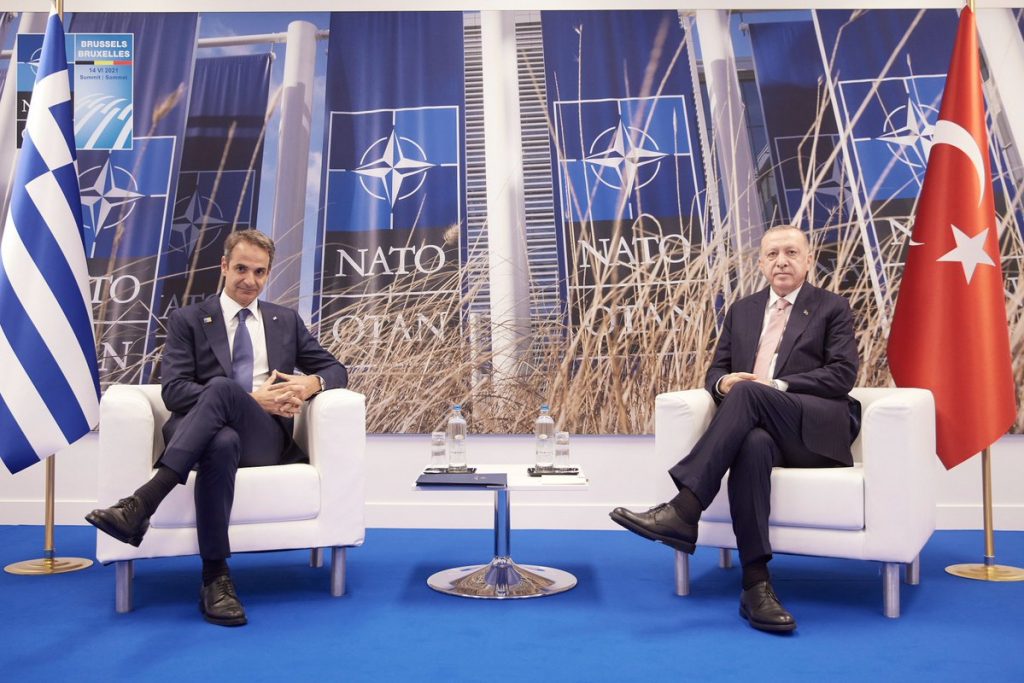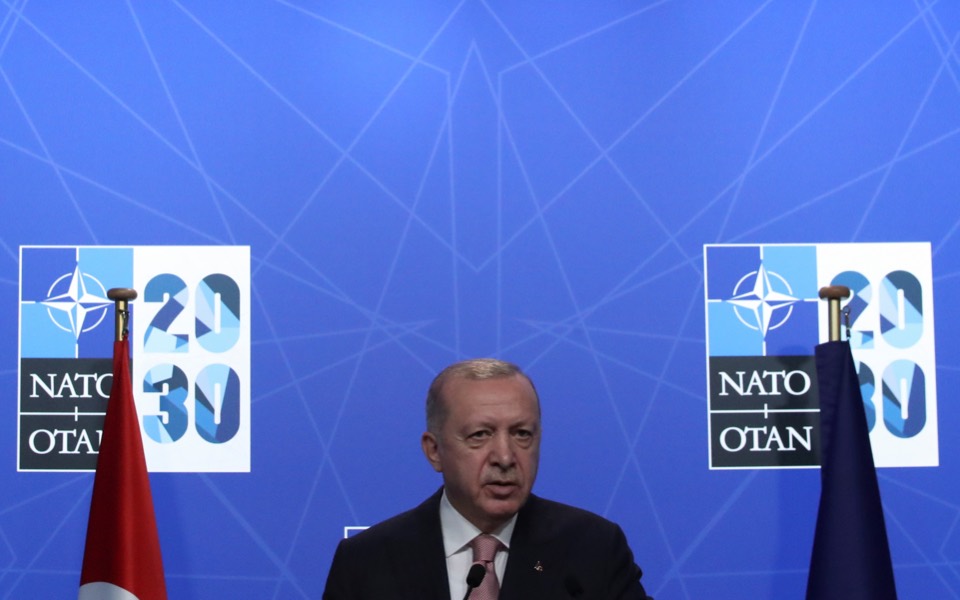The meeting between Greek Prime Minister, Kyriakos Mitsotakis, and Turkish President, Recep Tayyip Erogan, in Brussels on the sidelines of the NATO Summit “broke the ice” between the two countries, Greek government sources said on Monday.
The two NATO allies agreed “to leave behind the tension of 2020, despite the very important disagreements that exist,” the same sources said after the meeting, adding that the climate was positive.
The two sides agreed to avoid provocations that could lead to “situations that will be difficult to manage.”
The Greek side, according to the same sources, has every intention to advance the positive agenda that was recently formulated jointly by the competent Deputy Foreign Ministers (Kostas Frangogiannis and Sedat Onal).

At the same time, the talks on the delimitation of maritime zones, must continue in the context of international law.
In addition, Mitsotakis raised the issue of refugees, saying Greece is willing to cooperate with Turkey, to “avoid a repeat of provocations” such those that occurred in Evros in March 2020.
In this context, Mitsotakis conveyed that it would be a sign of good will for Turkey to accept the 1,450 immigrants, whose asylum applications have been rejected by the Greek authorities. The Greek request for the returns has been pending since last January, while the European Commission has also intervened, without result.

For his part, Erdogan said in a video address to a think tank event later that day, that a revival of dialogue with fellow NATO member Greece to resolve long-standing disputes will serve “stability and prosperity” in the region.
“I believe that reviving the channels of dialogue between (Turkey) and our neighbor and ally, Greece, and the resolution of bilateral issues will … serve the stability and prosperity of our region,” Erdogan said.
On Twitter, Mitsotakis agreed but stressed that although “differences” between both countries remain, “Greece and Turkey are neighbors and cooperation on issues of common interest is to the benefit of all. Dialogue therefore is always important.”
Source: Ekathimerini.

